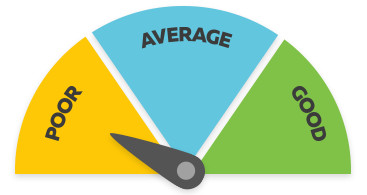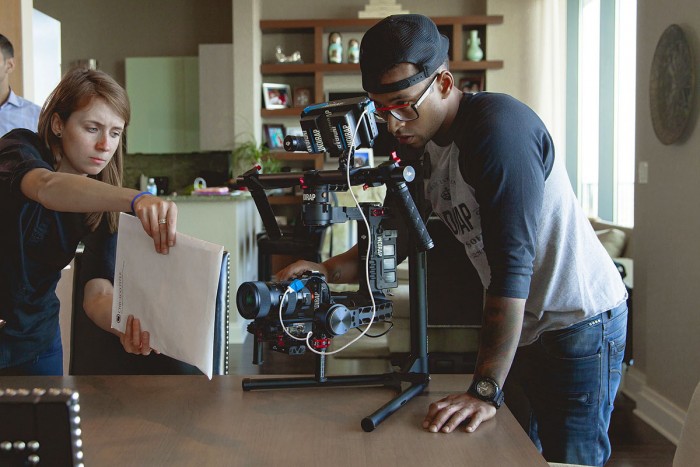Production Assistant (Film, Television, Radio or Stage)
Kaiāwhina Whakarite (Kiriata, Pouaka Whakaata, Irirangi, Whakaari rānei)
Alternative titles for this job
Production assistants help production teams organise the making of film, television, radio or stage productions.
Pay
Pay rates for production assistants vary depending on the type of production you work on.
Source: Attitude Group and Great Southern Television, 2018.
Job opportunities
Pay
Pay for production assistants varies depending on the type of production they are working on.
Production assistants often work on short-term contracts and work may be irregular with long periods between jobs.
Sources: Attitude Group; Fisheye Films; Great Southern Television; Picture Talk Productions, 2018.
(This information is a guide only. Find out more about the sources of our pay information)
What you will do
Production assistants may do some or all of the following:
- support the production manager and producer
- work out shooting schedules
- arrange production meetings
- co-ordinate and book production crews
- hire and book vehicles, accommodation, equipment and flights
- assist with housekeeping tasks such as tidying facilities
- get permission to use film locations
- administrative, publicity and research work
- clear copyright on music used.
Skills and knowledge
Production assistants need to have knowledge of:
- each department in their production company
- film and television production schedules
- how a studio operates and who to contact to fix problems
- how to use video editing software to perform basic editing tasks
- health and safety practices.
Working conditions
Production assistants:
- work varying hours, depending on the type of production. They may have to work 10-12 hour days with irregular hours, including evenings and weekends
- work in offices, studios, theatres and outside during location shoots
- may have to travel locally and nationally to work on productions.
What's the job really like?

Natalia Le Bas
Production Assistant
Freelance production assistant Natalia Le Bas shares how she got into her job and what it’s all about.
Change of career
“I came back to New Zealand after teaching English in China and wasn't really sure what I wanted to do. I got a job in customer service and realised I didn't want to do that as a career, so I ended up enrolling in a one-year production management course at South Seas Film & Television School.
“A few months after graduation I was fortunate to secure a job at a talent agency and 18 months later decided to pursue a career in the screen industry as a freelance production assistant.”
Making sure things run smoothly
“My job mostly involves basic, boring work or small jobs that free up the production co-ordinator for more important tasks. Everything from keeping the kitchen clean and tidy and making coffee for guests, to booking and setting up meeting rooms, and getting quotes for goods and services.
“But it's not your typical nine-to-five job and many of the people I work with are extraordinarily creative and the best in the industry. It's exciting and amazing to be part of the creative process.”
Resilience is key
“The ebb and flow of work in the industry can be an obstacle. I’ve had to spend months hustling for work and doing temporary jobs between productions. I think the only obstacle is yourself though – you’ve just got to keep going.”
Entry requirements
There are no specific requirements to become a production assistant. However, a tertiary qualification in media production, broadcasting, or film and television may be useful.
A full driver's licence is usually required.
Secondary education
There are no specific secondary education requirements to become a production assistant. However, English, media studies, digital technologies, design and visual communication, music, dance, and drama are useful.
Personal requirements
Production assistants need to be:
- logical and practical
- fast and accurate
- good verbal and written communicators
- able to show initiative
- able to work well under pressure
- able to work as part of a team
- good at problem solving
- well organised, with good time management skills
- good at researching
- good at administrative duties.
It's not your typical nine to five job. It's exciting and amazing to be surrounded by and be part of the creative process.
Natalia Le Bas
Production Assistant
Useful experience
Useful experience for production assistants includes:
- work as a production runner or production secretary
- work as an office or administrative assistant
- work as a researcher for film and television productions
- work on their own film, theatre or digital productions
- experience organising and dealing with the public.
Physical requirements
Production assistants need to be reasonably fit as they may need to do physical tasks, especially on location shoots.
Check out related coursesWhat are the chances of getting a job?
Few opportunities for production assistants
It is difficult to get work as a production assistant in New Zealand because the entertainment industry is small.
Your chances of getting a job are best if you network regularly with industry contacts.
Most film industry professionals build a portfolio of previous work to showcase their professional skills.
According to the Census, 270 directors (film, television, radio or stage) worked in New Zealand in 2018.
Types of employers varied
Production assistants may work for independent project teams, television and film production companies, or for advertising agencies.
Sources
- Buckingham, D, general manager, Attitude Group, Careers Directorate – Tertiary Education Commission interview, March 2018.
- Creative New Zealand, 'Arts Council lays framework for Phase 2 of Creative New Zealand’s COVID-19 response' (media release), 01 May 2020.
- Elliott, G, producer, Picture Talk Productions, Careers Directorate – Tertiary Education Commission interview, March 2018.
- Jackson, S, production manager, Great Southern Television, Careers Directorate – Tertiary Education Commission interview, April 2018.
- Ministry of Culture and Heritage, ‘Support for Arts and Music Sector Recovery’ (media release), 29 May 2020.
- Roe, T, general manager, Fisheye Films, Careers Directorate – Tertiary Education Commission interview, March 2018.
- Radio New Zealand, ‘The Impact of COVID-19 on the NZ Film Industry’, 19 March 2020, (www.rnz.co.nz)
- Stats NZ, '2018 Census Data', 2019.
- Stats NZ, 'Screen Industry: 2015/16', April 2017, (www.stats.govt.nz).
(This information is a guide only. Find out more about the sources of our job opportunities information)
Progression and specialisations
Production assistants usually specialise in either film, television, digital, radio or stage productions.
With experience, production assistants may move into other production roles, such as producer, director, editor or camera operator.
Last updated 7 August 2024

